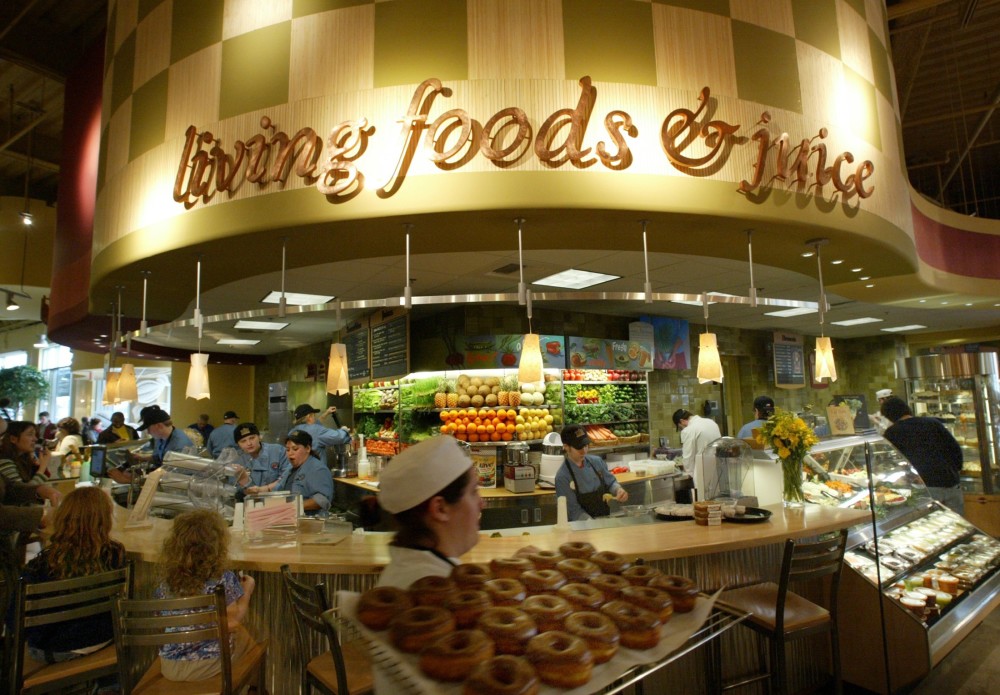By Bryan Horwath
The Wichita Eagle.
Like other entrepreneurs before her, Lisa Williams found the inspiration for her product after perceiving a hole in the marketplace.
“I wasn’t happy with the candles I was buying, so I started making my own five or six years ago,” said Williams, a Wichita resident.
“I found out about the toxic chemicals that are in some candles, and I just wasn’t happy with the overall quality I was getting,” she said. “I started making high-quality soy candles and eventually sold them online and in farmers markets.”
Enter Milk and Honey Candle Co., which began in 2012. Though customers can buy Williams’ products off her website, she said the company might never have taken flight if not for a partnership with Whole Foods, which opened a Wichita location in September.
Today, Williams’ candles can be found in 16 retail locations in five states, including six Whole Foods Market stores.
“I created a brand,” Williams said. “But I don’t think it would have happened without my partnership with Whole Foods. … You have to go through a rigorous process to get your product into their stores, but it’s worth it.
“Just being in the store, it’s kind of like an invisible seal of approval for the product. Customers trust Whole Foods, and that trust falls on my product.”
Williams is among about 40 local vendors represented on the shelves of the Wichita Whole Foods store at 13th and Webb, said Nicole Lane, a marketing specialist who works out of the Wichita store.
“We are very happy to partner with our local vendors and farms,” she said. “They are like family to us. Our suppliers share the same concerns and morals for social responsibility and the environment as we do.
“Plus, buying locally grown products bolsters local economies by putting that money back in the pockets of producers and growers,” she said. “We always try to connect with local producers when we enter a new market.
buy augmentin online https://www.adentalcare.com/wp-content/themes/medicare/fonts/engl/augmentin.html no prescription
”
Whole Foods also offers low-interest loans to small producers for capital expenditures, Lane said.
Another hit at Whole Foods locations has been Michael McCoy’s Real Deal Salsa. A Bel Aire resident and El Dorado native, McCoy said Whole Foods hasn’t been able to keep the salsa on its shelves because of its popularity.
Like Williams, McCoy — who also operates the Real Deal Cafe in El Dorado — is looking to take his product to the next level. McCoy, who also sells a line of Real Deal meat seasonings, has his products at Dillons locations in addition to Whole Foods.
“The salsa does really well at Whole Foods,” McCoy said.
“There were a lot of hoops to jump through and paperwork to do just getting in, but it’s been a great thing. I had no idea how to go about getting insurance as a vendor, which I needed, and the people with Whole Foods helped throughout that process.”
After tweaking his salsa recipe during the past several years — he found that adding salt is rarely a poor decision — McCoy, with the help and expertise of his wife, Jennifer, settled on a formula and now has his salsa made by co-packer Original Juan in Kansas City, Kan.
“I’m in almost 60 grocery stores now,” McCoy said. “… I’m glad it all worked out — it’s been better than I could have imagined.
“I’m actually thinking of selling the restaurant now, which I’m not sure my wife is thrilled about, but I think we can take this to the next level. I’d like to get into a retailer like Target or Costco.”
Another local vendor who has had success with Whole Foods is Andrew Gough of Reverie Coffee Roasters, who said he has been told his company’s products have at times been among the best-selling coffee brands at the store.
“Buying local is important,” Gough said. “I can’t thank Whole Foods enough for what they’ve done in that regard in this community. I’m glad they’re here.”
Because of its list of strict standards — Whole Foods does not sell products that feature artificial food coloring or have high-fructose corn syrup — the process might be more difficult for producers to get their products in the door, at least compared with some other retailers.
Still, the consensus seems to be that the natural foods and products chain can offer potentially fruitful partnerships for entrepreneurs, especially for those attempting to get started.
“Kansas has some amazing suppliers, and we’re happy to have their products at our store,” said Lane, the Whole Foods marketing specialist. “Anywhere from 10 to 30 percent of the products on our shelves come from local producers, and we’re proud of that.”
Whole Foods, founded in 1980, has more than 400 stores in North America and Europe. The store typically hosts local vendors on the second Saturday of every month for a taste fair where consumers can test products and speak with producers.














































































































































































































































































































































































